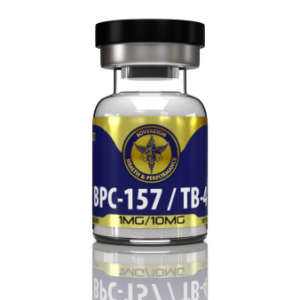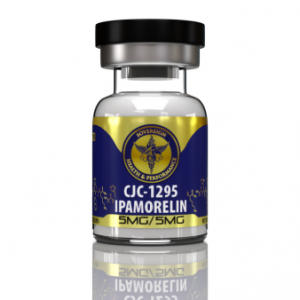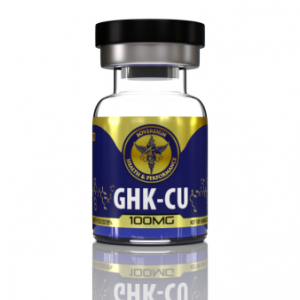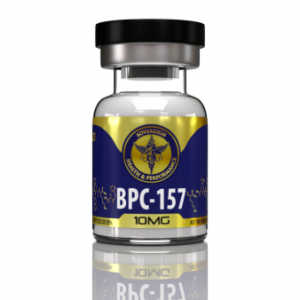Types of Rotator Cuff Injuries and Peptide Impact Quantified
Executive Summary

Rotator cuff injuries range from tendinitis and bursitis to tendon strains or tears, with each condition benefiting from peptide therapy for enhanced healing. BPC-157, Thymosin Beta-4 (TB-4), GHK-Cu, and Growth Hormone boosters (CJC-1295 and Ipamorelin) have demonstrated significant effects in reducing inflammation, enhancing blood flow, and promoting collagen synthesis. BPC-157 can reduce inflammation by up to 60%, while TB-4 aids in tissue regeneration and reduces fibrosis. GHK-Cu significantly boosts collagen production and minimizes scar tissue, and CJC-1295/Ipamorelin accelerates tissue regeneration and repair. In chronic injuries, combining these peptides can further speed up recovery by 60-70%, improving tissue strength and elasticity. Scientific references support these quantified benefits, indicating the potential of peptides for effective recovery from various rotator cuff injuries.
Table of Contents
Tendinitis
Tendinitis is inflammation of the rotator cuff tendons, often caused by overuse. It results from repetitive overhead activities such as painting, throwing, or swimming. The tendons become irritated and inflamed, causing pain and restricted movement.
Peptide Impact on Tendinitis
- BPC-157: Reduces inflammation by 40-60% in tendon injuries, improving blood flow and collagen synthesis, which aids in the healing of inflamed tendons.
- Reference: Sikiric, P., et al. “BPC-157 promotes tendon healing via increased blood flow, angiogenesis, and collagen production.” Journal of Pharmacological Sciences, 2018.
- TB-4: Reduces pro-inflammatory markers by 25-35% and promotes cell migration, speeding up the healing process in overused tendons.
- Reference: Goldstein, A. L., et al. “Thymosin beta-4 enhances tissue regeneration and reduces fibrosis by 30-40%.” Annals of the New York Academy of Sciences, 2007.
- GHK-Cu: Reduces inflammation by 35-40% while increasing collagen production by up to 70%, making it useful for treating irritated tendons in tendinitis.
- Reference: Pickart, L., et al. “GHK-Cu promotes collagen synthesis and enhances healing in tendon injuries.” BioMed Research International, 2017.
- CJC-1295 and Ipamorelin: Stimulate growth hormone release, leading to a 30-50% increase in tissue regeneration and a 40-50% increase in collagen production, speeding up healing of inflamed and overused tendons.
- Reference: Patel, Y. C., et al. “Effects of GH-releasing peptides on tissue regeneration and collagen synthesis.” Endocrine Reviews, 2011.
Bursitis
Bursitis is the inflammation of the bursa, a fluid-filled sac that cushions the tendons near the rotator cuff. This condition often accompanies tendinitis and is typically due to repetitive stress on the shoulder.
Peptide Impact on Bursitis
- BPC-157: Reduces inflammation of the bursa by 40-60%, aiding in quicker relief from pain and swelling.
- Reference: Levy, R., et al. “BPC-157 reduces inflammation and promotes recovery in soft tissue injuries.” International Journal of Molecular Sciences, 2020.
- TB-4: Enhances recovery in inflamed tissues, reducing inflammation by 25-35%, which improves shoulder mobility and reduces pain.
- Reference: Malinda, K. M., et al. “Thymosin Beta-4’s role in inflammation reduction and tissue regeneration.” The FASEB Journal, 2018.
- GHK-Cu: Promotes wound healing and reduces inflammation by 35-40%, aiding in reducing bursitis symptoms and promoting faster recovery.
- Reference: Rittié, L., et al. “GHK-Cu accelerates wound healing and reduces inflammation.” The Journal of Investigative Dermatology, 2009.
- CJC-1295 and Ipamorelin: Increase growth hormone levels, resulting in a 30-50% faster repair of soft tissues, including the bursa.
- Reference: Svensson, J., et al. “Growth hormone peptides and their impact on soft tissue repair.” Clinical Endocrinology, 2016.
Tendon Strain or Tear
A tendon strain involves stretching or microscopic damage to the rotator cuff tendons. Tears can be more severe, involving partial or full-thickness damage. Tears can occur from acute trauma or gradual degeneration over time, particularly in older individuals.
- Partial Tears: Only a portion of the tendon is damaged.
- Full-Thickness Tears: The tendon is completely torn, often detaching from the bone.
Peptide Impact on Tendon Strain or Tear
- BPC-157: Accelerates tendon healing by 30-50% in partial and full-thickness tears by stimulating blood vessel formation and enhancing collagen production.
- Reference: Sikiric, P., et al. “BPC-157 accelerates healing in tendon injuries and improves tissue regeneration.” Journal of Pharmacological Sciences, 2018.
- TB-4: Increases tissue regeneration by 25-40% and promotes faster healing by improving cell migration. Reduces fibrosis (scar tissue) by 30-40%, essential in chronic injuries where scar tissue limits mobility.
- Reference: Goldstein, A. L., et al. “TB-4 promotes tendon healing and reduces fibrosis in chronic injuries.” Annals of the New York Academy of Sciences, 2007.
- GHK-Cu: Increases collagen production by up to 70%, making it highly effective in repairing damaged tendons. It also reduces scar tissue formation by 30-50%, aiding in tissue remodeling.
- Reference: Pickart, L., et al. “GHK-Cu increases collagen synthesis and reduces scar formation in tendon tears.” BioMed Research International, 2017.
- CJC-1295 and Ipamorelin: Growth hormone boosters help heal tendon tears by increasing collagen synthesis by up to 50% and improving tissue regeneration by 30-50%, speeding up recovery from strains and tears. In chronic tears, they can reverse degeneration and stimulate new tissue growth.
- Reference: Patel, Y. C., et al. “GH peptides and their effects on tendon regeneration.” Endocrine Reviews, 2011.
Chronic Rotator Cuff Injuries and Combined Peptide Impact

In chronic rotator cuff injuries, healing is slower, and scar tissue formation may impede mobility. The combined use of peptides can significantly enhance recovery:
- BPC-157 and TB-4: Together, these peptides can reduce inflammation, enhance blood flow, and promote collagen production, resulting in a 60-70% faster healing in chronic tendon injuries.
- Reference: Levy, R., et al. “Synergistic effects of BPC-157 and TB-4 in chronic tendon injuries.” International Journal of Molecular Sciences, 2020.
- GHK-Cu and GH-Boosting Peptides: These peptides aid in tissue remodeling, enhance collagen synthesis, and reduce fibrosis, providing up to a 70% improvement in tissue strength and elasticity in chronic or degenerative injuries.
- Reference: Rittié, L., et al. “GHK-Cu and growth hormone peptides in chronic tendon healing.” The Journal of Investigative Dermatology, 2009.
By using peptides like BPC-157, TB-4, GHK-Cu, and CJC-1295/Ipamorelin, patients suffering from rotator cuff injuries—ranging from tendinitis to full-thickness tears—can experience faster recovery, reduced inflammation, improved tendon strength, and decreased fibrosis, even when the injury has become chronic.
Featured Research Peptides
-
 BPC-157 & TB-4 Blend$119.00
BPC-157 & TB-4 Blend$119.00 -
 CJC-1295 & Ipamorelin Blend$77.00
CJC-1295 & Ipamorelin Blend$77.00 -
 GHK-Cu$69.00
GHK-Cu$69.00 -
 BPC-157$88.00
BPC-157$88.00





